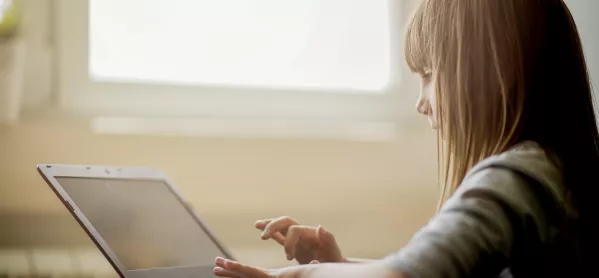A quarter of teachers in prep schools have been stressed by the parent-teacher relationship during times of remote learning, with some finding parents’ “microscopic” focus on their work “difficult to manage”.
In a survey for a new report from the Independent Association of Prep Schools (IAPS) and Tooled Up Education, 25 per cent of 1,190 IAPS staff said that working with parents on home-schooling had been stressful.
Related: Private school pupils clean desks to tackle Covid
Profile: ‘Prep schools aren’t Hogwarts - we innovate’
Exclusive: Three in 10 prep schools could change term dates
“Inevitably, during the lockdown and the peak periods of the effect of coronavirus, the traditional relationship between school, parent, child had been disturbed,” Christopher King, chief executive of IAPS, told Tes.
“And in all kinds of ways when we talk about resetting, I think it’s re-establishing some of the boundaries, perhaps changing those boundaries somewhat.
“Parents’ evenings, for example, have been conducted virtually for a long period of time and parents have got used to a new way of operating, and some will have liked it, some will have not, but we need schools to recalibrate with the parents in whatever way works for them.
Parent scrutiny of remote learning ‘stressful for teachers’
“I think parents have had really quite a unique experience of seeing inside of school at times when they would never traditionally have been able to. They’ve been able to look into assemblies, for example, and I know some schools are thinking, ‘Well, that was well-received by parents.’”
But he added: “I think what has happened on the other side of it is that whilst in some instances the parent will have had an insight into the school operation which the school will have found positive, on another side of it there have been opportunities for those parents who have chosen to go beyond the normal boundaries and have a level of access to the classroom teacher and to make judgements on the classroom teachers - whatever their prejudices might be - that quite a lot of staff have found intrusive and difficult to manage.”
He said parents would not have the complete context of a sequence of lessons or the management of pupils or groups of pupils in a virtual session to make a judgement and that some teachers had found this “very intrusive”.
Parents have questioned teachers’ methods, asking ”‘Why have you done it that way?’, that sort of thing, which in a classroom setting you would not ever experience”.
“In a traditional parents’ meeting, the member of staff is open to challenge, but if the teacher comments negatively on the performance of the child then it’s not unusual for the parent to turn round and say, ‘OK, fine but what are you, the teacher, going to do about it?’” Mr King said.
“But this is ramping it up to a different level, and that microscopic, in some instances, examination of performance has proven really quite difficult for some staff.”
He said that headteachers’ mental health had also “taken a battering during the pandemic”, particularly when advice from the Department for Education had “flip-flopped around 180 degrees the other way” from the morning to the afternoon on Covid safety measures.
The study found that more than three-quarters (76 per cent) of school staff were worried about the amount of time pupils were spending on screens, and over two-thirds agreed that a lack of in-person interaction had been detrimental to pupils’ social skills, and damaging to younger pupils’ emotional development.
Nearly two in five respondents - 38 per cent - said they had concerns about parents’ willingness to work with schools on these issues.
And over two-thirds (70 per cent) of school staff were worried about pupils’ mental health as they returned to the classroom.
While teachers felt confident discussing these issues with colleagues, nearly half - 49 per cent - said they lacked confidence discussing them with parents.
Around two-thirds (64 per cent) said they would like additional training to support pupils with mental health and wellbeing concerns.





